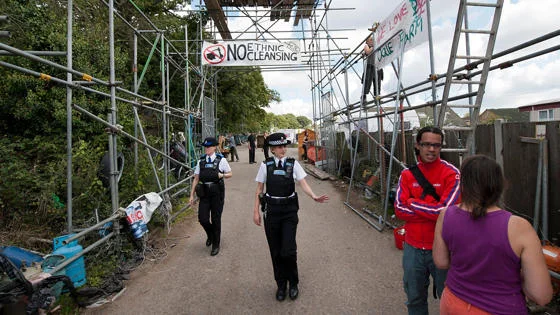Twenty-first century slavery, young victims and county lines

Contents
Ever since the government identified county lines as an emerging threat in 2015, hardly a day has gone by when the media have not reported on the expanding illicit economy of heroin and crack cocaine across Britain.
County lines is the name given by the police to the ever-expanding networks of Class A drug retail markets, from cities to smaller market and coastal towns. This spread is attributed to the saturation of drugs markets in larger urban centres. County lines work through designated drug phone lines, with mostly young people and vulnerable adults acting as the foot soldiers and delivering drugs for those higher up in the chain.
All too often professionals continue to see young people as perpetrators of crime. Even where young people’s need for safeguarding is acknowledged.
Modern slavery, victimhood and problematic policy responses
One innovative response promoted by government has been to shift the focus away from criminalising young people involved at the lower echelons of county lines and instead to recognise them as victims of criminal exploitation and potentially as victims of modern slavery and human trafficking. The National Referral Mechanism (NRM), the government’s mechanism for identifying and recording modern slaves, has recorded an unprecedented rise in child slaves over the last years, a rise that can be attributed to county lines.
However, while efforts have been made to move away from a culture of criminalisation, change has been slow. My research examines why this is the case. First, it can be difficult to break with punitive cultures at the frontline. All too often professionals continue to see young people as perpetrators of crime. Even where young people’s need for safeguarding is acknowledged, professionals can continue to think of individuals in terms of rigid categories of "victims" and "offenders", when these distinctions are extremely difficult to draw in practice.
Second, uncertainty and sometimes outright contradictions persist at an institutional level. All too often, different government bodies are in conflict with one another as to how to treat an individual case. In particular, my research reveals that young people found to be modern slaves by the NRM mechanism continue to be charged by the Crown Prosecution Service (CPS) for various offences. While this is in line with CPS guidelines, it not only produces delays, retrials and appeals at great expense to the tax-payer, but perhaps even more worryingly can also result in serious miscarriages of justice.
Finally, the law has been slow to react. The legal framework for addressing criminal exploitation in county lines has been provided by the Modern Slavery Act 2015. The legislation, unique in its nature, provides both a prosecution and a defence tool. However, the Act was not designed with county lines in mind. Indeed, it has proven to be extraordinarily difficult to bring prosecutions under the act, while defence barristers can struggle to run the modern slavery defence.
The government has recorded an unprecedented rise in child slaves over the last years, a rise that can be attributed to county lines.
Pathways for positive change
While all these factors do make the decriminalisation of the young and vulnerable caught up in county lines harder, my research indicates clear steps that, if taken, can create real progress.
First, on the most basic level, there is the need for better awareness of the complexities of county lines and its organisational model at frontline and professional levels. To put it bluntly, those dealing with county lines cases need to recognise that not all drug dealers ought to be treated as criminals and that, furthermore, the line between a victim and a criminal is often blurred. This recognition necessitates a wholesale shift in prevailing punitive cultures and a dispassionate mechanism for making these decisions that does not rely on individual good will.
Second, there is an urgent need for better institutional cooperation and more judicial clarity. Bureaucratic and judicial procedures have to be made fit for purpose. This should include, at the very least, a thorough review of the NRM mechanism as it applies to county lines, a revisit of the existing CPS practices in county line cases, and the relationship between the two. It should also include a thorough review of the Modern Slavery Act along the lines undertaken by the Independent Review Committee in 2018 but this time specifically with reference to the case of county lines.
Finally, no positive change is going to be possible unless adequate resources and infrastructural support is made available. My research confirms that all too often young people are groomed into county lines when excluded from mainstream education and training. Many also suffer from multiple vulnerabilities, induced by inequality and poverty. Necessary support includes access to education, training opportunities and crucially also affordable housing for those caught up in exploitation and their families.
Connecting with politicians to create change
Together with the LSE Public Affairs Team, I have been working on feeding some of these insights back to parliamentary channels. Prompted by a brief we prepared for Labour Lord Baroness Kennedy, she was able to ask the Home Office Minister to look into the uses of modern slavery legislation in county line cases, which he has agreed to do. We continue to be in conversation with government channels to feed this research up to the highest policy levels with a view of implementing positive change.
Image: SolStock/iStock.
Download a PDF version of this article




